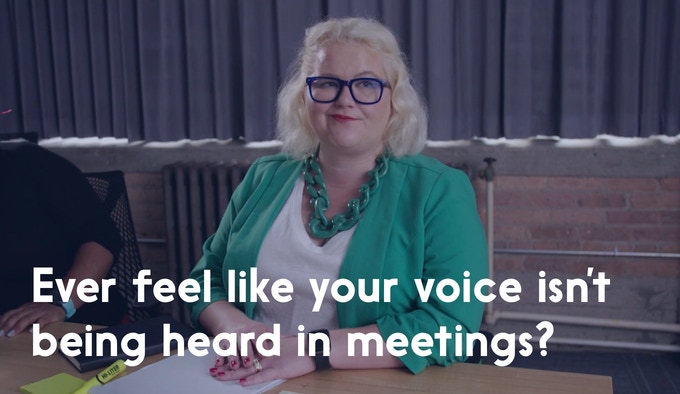Those of you familiar with my work know how important I believe it is to make better decisions by getting a variety of voices around the table, thus avoiding groupthink and making room for important perspectives you might otherwise miss. But what if you’ve got the right minds around the table but they don’t get heard?
That’s why I was so intrigued when I learned about a Kickstarter for Inclusion Meeting Cards, a project from the Chicago based software development company Table XI. The game is a simple, tangible, non-confrontational tool for reorienting discussion, using humor to defuse potentially tense interactions like telling someone to stop interrupting.
Reading the book Multipliers: How the Best Leaders Make Everyone Smarter led to an “Aha!” moment for Table XI CEO Mark Rickmeier, for whom the book’s “accidental diminisher” concept hit home in a personal way.
As a dynamic, admittedly over-enthusiastic CEO who felt that he always had to have an answer ready he realized that he had unintentionally been not only diminishing his employees’ ideas but also missing the opportunity to identify his own best value-added. “By speaking first you can take the oxygen out of the room,” he told me was his big takeaway from the book.
Rickmeier talked about his epiphany with colleagues at the monthly Inclusive Conversations dinner his company hosts in Chicago to share ideas with other firms about how to build an inclusive culture.
And then his team had an idea: what if they could find a fun way to help people recognize the counterproductive conversation habits they usually don’t even realize they have? And even better, a way to do so in real time instead of waiting for a performance review when the guilty party is unlikely to connect feedback to a specific instance of that behavior?
They came up with two sets of cards. The “antis” help people to identify common patterns like people veering off trap, speaking too quietly, going on and on about something way past the point of usefulness. “Anti” cards include “beating a dead horse,” “down a rabbit hole,” “interrupted,” “speak up,” and “off on a tangent.”
“Those were difficult things for people to give feedback on because they were very personal,” Rickmeier said. “And critiquing personalities and communications styles is something people take personally.”
The second kind of card encourages role playing to change mindsets. For example, there’s a devil’s advocate card to encourage people to present contrarian perspectives and even disagree openly with someone in power. (If you’ve read THE GRAY RHINO, you know that this is something I, well, advocate.) And then there’s the angel’s advocate card for the team member who loves to pour cold water on everyone else’s idea: they are compelled to answer “yes, and…” both to counter their usual mindset and to make shy team members less afraid to share new ideas.
And then he wrote up a LinkedIn post about the inclusive card game idea. The response was immediate and global: he had emails from Spain, Norway, New York City, the Bay Area, and elsewhere, asking how they could get ahold of the cards.
That was a hint that Table XI might be on to something. To further test the level of interest in the cards and to get feedback to see if they could make them even better, they launched a Kickstarter.
Suggestions have poured in, including one for flagging unconscious biases, a “parking lot” card to table a discussion for later, a “be more present” card for the device-addicted, My favorite is the one for people who ignore a colleague’s idea then a few minutes later offer the same idea up and take credit for it. (The professor Nicole Guglicci popularized an apt word for this after her friends coined the expression “he-peating”– since men often are the culprits.)
In testing, Table XI has found that after a few months, his teams ended up having to use them less and less. “Ideally, the cards become less necessary,” Rickmeier said.
He is both excited about what the cards can do, and conscious of what they cannot. They are just one tool. “The real challenges of diversity are far bigger than anything a card game can solve,” Rickmeier noted.
I heard about the project through my friend Nicole Vasquez, the co-working goddess and dynamic co-founder of Deskpass and Second Shift, named Chicago’s best co-working space by Chicago Reader.
She introduced me to Ashley Pettit and Matt Cornelison of FUNGI Media, who created a concept video suffused with Midwestern humor, and put me in touch with Rickmeier. And now you know about this great idea too.
Check out the video on the project’s Kickstarter page, live through November 29th.
#gamification #diversity #inclusion #decisions #teamwork #leadership
Subscribe to “Around My Mind” by clicking the blue button on the top right hand of this page. Please don’t be shy about sharing, leaving comments or dropping me a private note with your own reactions.
- The Gray Rhino Wrangler on Substack - January 1, 2025
- Gray Rhino Risks and Responses to Watch in 2024 - January 10, 2024
- In the Media 2023 - December 31, 2023


